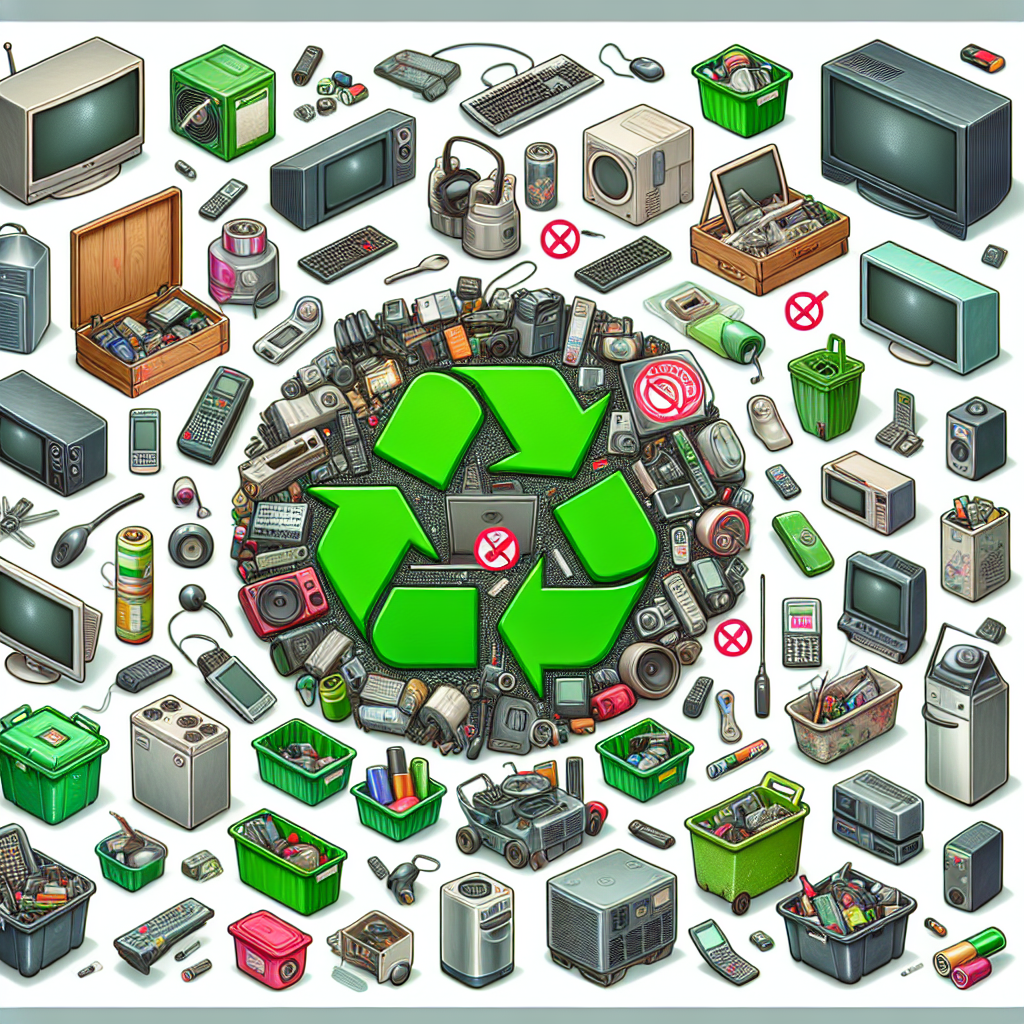Blog Ecobraz Eigre

Residential Electronic Waste Collection: What You Can and Can't Do
Introduction
The proper management of household electronic waste is crucial to minimizing environmental impacts and promoting sustainability. This article covers in detail what can and cannot be disposed of, according to the guidelines established by Brazilian legislation and official bodies.
What Can Be Collected in Residential Electronic Waste
According to the Law No. 12.305/2010, which establishes the National Solid Waste Policy (PNRS), end-of-life electronic equipment must be sent to specific selective collection systems. Items such as cell phones, computers, televisions, stereos and small household appliances are accepted for collection and recycling.
This equipment must follow the procedures established in electronic waste collection with registration and environmentally appropriate disposal.
What Cannot Be Disposed of in Household Electronic Waste
Certain materials should not be disposed of together with ordinary electronic waste, as they pose risks to health and the environment. Waste containing toxic or hazardous materials that require special treatment includes:
- Devices containing mercury, cadmium or other heavy metals, the handling of which must follow specific rules from the National Irrigation Secretariat and environmental agencies.
- Waste dismantled electronic components and printed circuits that require specific recycling processes.
In addition, electronic equipment that stores data must undergo secure information disposal procedures to avoid vulnerabilities.
Secure Disposal of HDDs and Media for Data Protection
To prevent information leakage, the secure disposal of HDDs, SSDs and other media is necessary. Recommended sanitization and physical destruction techniques are regulated and need to be applied to guarantee information security, as established by the NIST Special Publication 800-88.
Specialized services in safe disposal of hard drives and media should be used to ensure the complete removal of data before it is sent for recycling or final disposal.
Legislation and Regulations Applicable to Residential Electronic Waste
The Law 12.305/2010 is the main legislation governing solid waste management in Brazil, including electronic waste. In addition, the National Solid Waste Management Information System (SINIR) provides the basis for integrating management and monitoring systems.
According to guidelines from CETESB, public authorities and society must encourage selective collection and guarantee the environmentally correct disposal of waste, avoiding contamination of soil and water.
Recommended Procedures for Environmentally Appropriate Disposal
It is recommended that household electronic waste be stored temporarily in a safe place, avoiding physical and environmental damage. Subsequently, it should be delivered to authorized collection points, integrated into reverse logistics systems in accordance with technical standards and current regulations.
Correct disposal promotes the recovery of valuable materials and reduces pollution, making it an essential practice for communities and governments.
Conclusion
The correct identification of what can and cannot be disposed of in household electronic waste is fundamental for environmental preservation and the protection of public health. Full compliance with legislation, combined with the use of specialized and authorized services, ensures an efficient collection, disposal and recycling process.
To ensure correct disposal, use the official channels of electronic waste collection and safe disposal of hard drives and media, guaranteeing legal and environmental compliance.

Deixe um comentário
O seu endereço de e-mail não será publicado. Campos obrigatórios são marcados com *